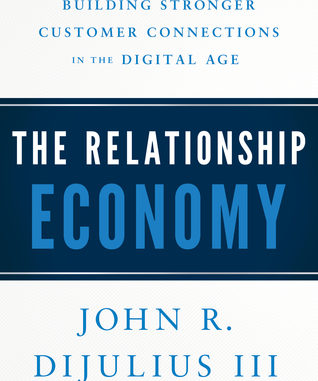
John Dijulius III brings over two decades of professional and practice experience in the area of customer service to bear in his latest book The Relationship Economy: Building Stronger Customer Connections in the Digital Age. His work with an assortment of companies like Lexus, The Ritz-Carlton, and Progressive Insurance gives him instant authority with readers, but he is a successful businessman in his own right with a small but influential company John Robert’s Spa rating as one of the nation’s best salons. The Relationship Economy isn’t a lengthy work, Dijulius brings the same focus to writing that he does to his professional life, but it never glosses over the subject. He writes, as well, in a manner any reader can grasp and has equal relevance with both large and small companies. His lessons and advice have universal application rather than tailored to a specific readership.
THE DIJULIUS GROUP: thedijuliusgroup.com/product/the-relationship-economy/
There is a well-tuned balance maintained throughout the book between the obvious extensive research Dijulius invests in the book and his hands on experience with the subject. He pulls from countless examples of how major corporations and companies are adapting, with success and failure alike, to the fast changing demands of the digital marketplace while emphasizing the ever present need for excellent customer service in order to maintain success. Technology creates new kings of marketplace niches with frequent regularity, but upstart rivals getting the jump on the latest advancements often displace them in quick succession. Few of these companies last because they rely on technology to distinguish and elevate them at the expense of establishing any sort of personal connection with the customer base they purport to serve.
AMAZON: www.amazon.com/Relationship-Economy-Building-Stronger-Connections/dp/1626346437
Dijulius believes and backs up with evidence and solid reasoning alike that the movers and shakers of the future are those companies able to successfully integrate technology and providing a satisfying personalized customer service experience for consumers. The bulk of The Relationship Economy’s eleven chapters focuses on this with brief overviews included at the end of each section that recap the subject at hand. The book, in important ways, reflects the reasons for Dijulius’ business success and embodies his philosophy of customer service. He creates an easygoing rapport with his readers and the personal connection he establishes, making it clear he has a personal investment in their success, elevates The Relationship Economy far above common works of this type.
Clay Burton
